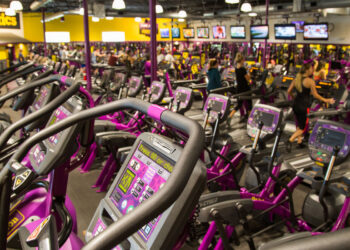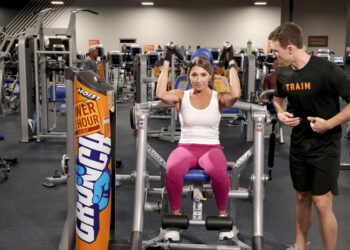David Geslak, an exercise physiologist and conditioning specialist, works closely with children and families affected by autism — and one day he noticed that he was missing a very important tool needed to do his job effectively. “I was teaching at a school for children with autism, and there were no visual supports for exercise,” he said.
The National Autistic Society says that visual supports can be used to help people with an autism spectrum disorder.
“Presenting information in a visual way can help to encourage and support people’s communication, language development and ability to process information. It can also promote independence, build confidence and raise self-esteem,” the program’s official website states.
As a physical education teacher at the time, Geslak assumed that others in his profession had more than likely experienced the same dilemma, so he created a paper-based system that eventually evolved into the app now known as Exercise Buddy.
The app uses pictures and videos to show children and adults on the autism spectrum how to exercise.
It can also help personal trainers who often don’t fully understand autism to better communicate with their clients.
Geslak emphasizes that health club professionals should not expect to train autistic individuals in the same way that they would their neurotypical counterparts.
“I walk into these clubs and I see these guys and girls not even taking notes on their clients, but at the end of the day you can’t do that with a kid with autism,” he said.
The app features three autistic individuals demonstrating various exercises, serving as a real-time visual aide for its user — which Geslak contends can be anyone.
“Paraeducators, or a non-exercise professional, or a parent can actually see what they should be helping their child perform with, or the exercise they should perform,” he said.
Geslak predicts an approaching rise in the number of autistic patients who find themselves in exercise establishments.
“After talking to parents, working in health clubs, and with the rise in autism, these kids and these adults — if they’re not entering the health clubs now, they soon will be,” he said.
Which is why he warns that professionals in the industry should strive to better understand how to accommodate the needs of autistic clients.
“The ‘no pain, no gain’ mentality won’t work with these kids, and that’s the worst thing you can do,” added Geslak. “It’s going to end up deterring them from exercise when exercise could help them in so many ways. It’s really simple tweaks to help them not only independently navigate a health club, but also work with them to teach them exercise.”
The app costs a one-time fee of $30, and is available for download only on Apple iPads.











